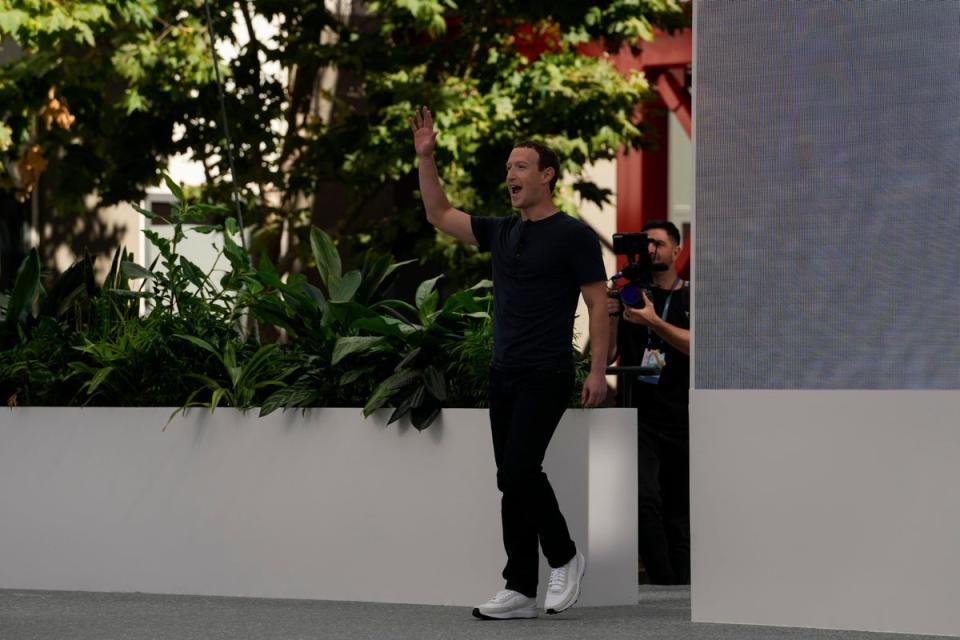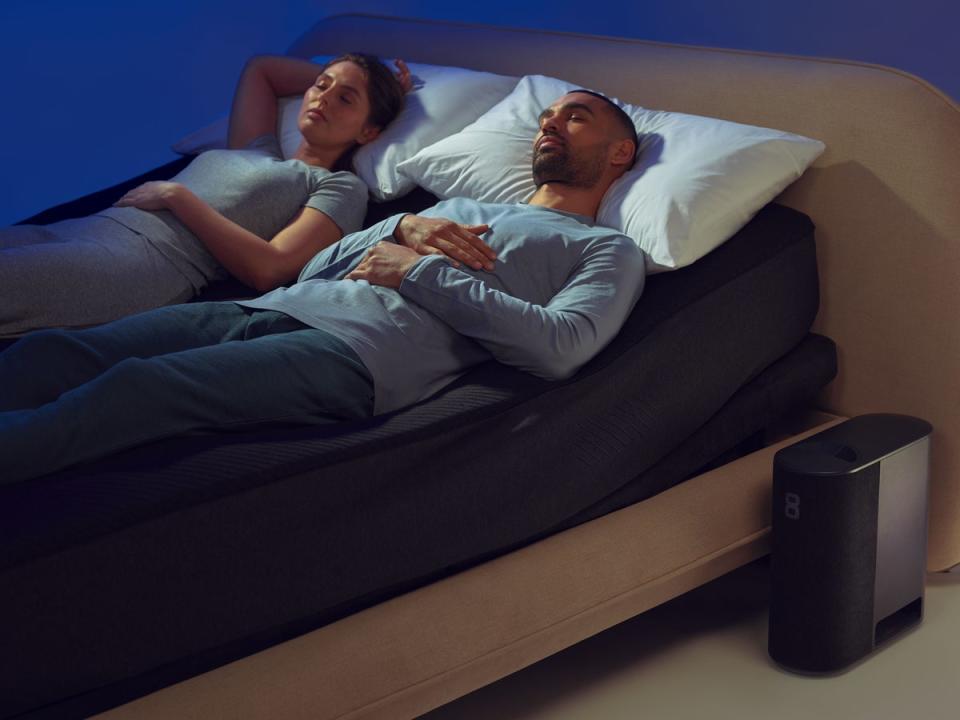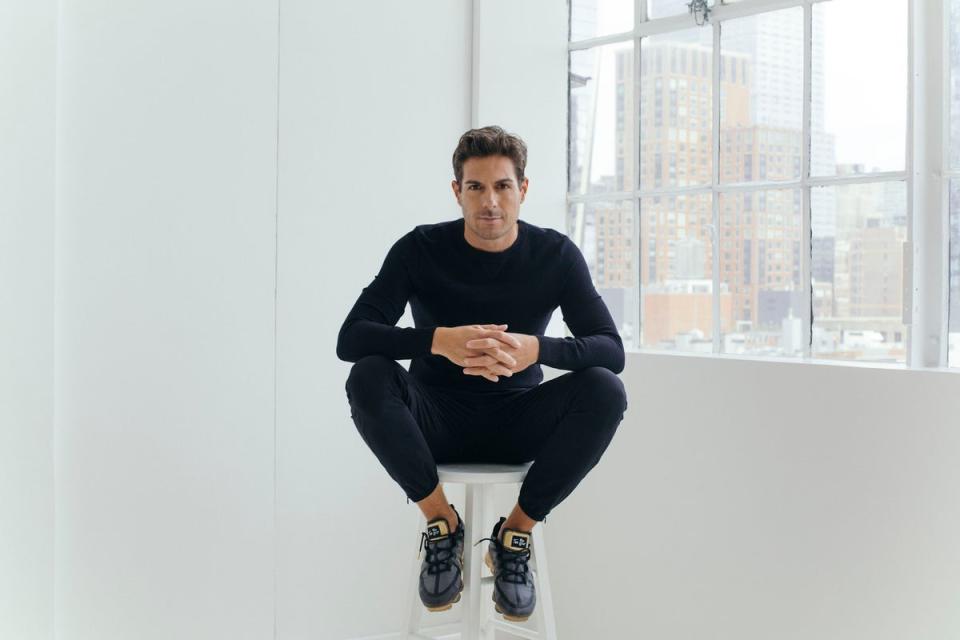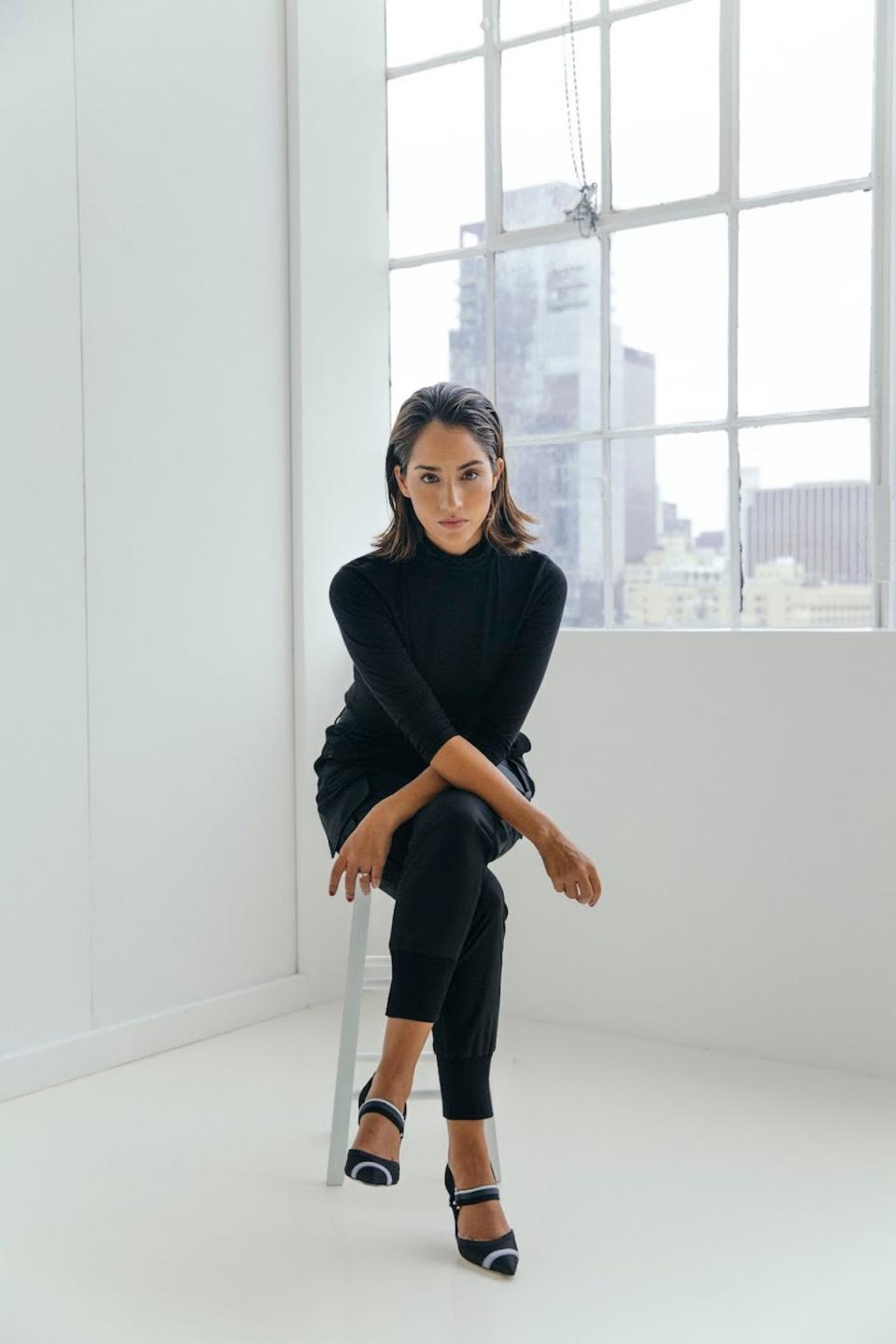Can this £3,000 bed help me sleep like a billionaire?

Beds have been with us in some form or other since 77,000 BC. Raised beds were the work of the Ancient Egyptians, eager to prevent snakes and rodents from reaching bodies at rest. Soon, these became status symbols: the rich covered their beds with gold, jewels and ebony; and the Romans, later on, would adorn theirs with precious metals. Their mattresses would be stuffed with straw and feathers while lowly plebeians had to make do with beds of wood and string.
Today’s elite – the technocrats and billionaires whose luxury gyms I wrote about recently – are peddling forth this centuries-old disparity with a new bed, The Pod. Designed by “sleep fitness” company Eight Sleep, founded by husband-and-wife duo Matteo Franceschetti, 42 and Alex Zatarain, 34, it marks the latest innovation in the lucrative “well-tech” space where companies promise to correct the issues caused by our tech-addled age with… more tech.
Ironic, yes, but the Pod is not to be sniffed at. It counts some of the world’s top athletes (Formula 1’s Lewis Hamilton and George Russell), tech overlords like Elon Musk and Mark Zuckerberg, and biohackers like Tim Ferris among its users. Now in its fourth iteration (Pod4 – yours for £2,649), it far outranks earlier sleep-tracking devices like Fitbits or Garmin watches. It is a smart mattress cover, connected to a mobile app and a control-centre (a box on the side of the bed), which tracks heart rate variability to determine the quality, routine and duration of one’s sleep. It gives you an overall “sleep fitness” score out of 100 every night.

Eight Sleep, most recently valued at $500 million, is looking to rival companies like Oura and Whoop which have been selling sleep-tracking wearables like rings and wristbands for years. The usual suspects are involved too, of course, with Google and Apple watches offering similar sleep-tracking functions. What warrants all these gadgets? “61 per cent of Britons struggle to get good sleep,” the physiologist and lifestyle coach Oliver Patrick tells me. “Many of them suffer from insomnia or sleep apnoea.”
Nearly nine in ten people look at their phone or tablet in the hour before going to bed. Three in four say their phones stay in the bedroom at night.
Roughly 30 percent of Britons, i.e. half of those suffering, are unable to reach the state of deep sleep necessary for repair and memory consolidation – due entirely “to lifestyle choices”, Patrick claims – as well as historically recent changes in our sleep patterns caused by longer workdays. People are consuming too much caffeine; eating or being active too close to bedtime; stressed out because of work; unable to switch off their phones. According to a recent YouGov study, nearly nine in ten people look at their phone or tablet in the hour before going to bed. Three in four say their phones stay in the bedroom at night.
The Pod addresses these problems head-on. It has a built-in alarm function to wake you up via temperature change or gentle vibrations – i.e. heat, cool, or buzz – allowing you to keep your phone in another room. As for conditions like sleep apnoea, when breathing repeatedly stops and starts while unconscious, they have developed a premium version of Pod4, Pod4 Ultra, which tackles breathing difficulties (and snoring) via an incline feature (pictured above). More advanced Eight Sleep products will also be able to block out light and sound, creating a space akin to a cave. I am shown a prototype of the Hyperpod, a canopy bed which Zatarain and Franceschetti have at home in Miami. It's impressive.

I tried Pod4 at 1 Hotel, Mayfair last Monday. I’d opted for a dry night, as alcohol is a major disruptor of deep sleep. “Even just one beer, or a single glass or wine, is enough,” Patrick says. Having ticked that I was a smoker on the Eight Sleep sign-up form, I wanted to see whether a cigarette before bed would affect my heart rate and breath rate. I was pleasantly surprised by my results: 56bpm and 14.4/min, entirely normal.
In every sense, the bed lived up to its billionaire rep: I even dreamt that I was at the Met Gala and met Beyoncé and Jay Z.
I also wanted to see whether a change in temperature would ease me, a notoriously deep sleeper, awake. I decided to schedule an increase from 18.5 to 25 degrees Celsius at 6am. It didn’t work: I awoke to a call from reception at 8:35 asking why I was late for my interview with the Eight Pod founders. Note to self: don’t risk using a new kind of alarm when you have an early meeting with someone who was on the Forbes 30 Under 30 list at age 27 (Zatarain, in the Consumer Tech category). And to Eight Sleep: thank you for giving me the best sleep of my life (9 hours and 43 minutes in total, with a sleep fitness score of 97/100). In every sense, the bed lived up to its billionaire rep: I even dreamt that I was at the Met Gala and met Beyoncé and Jay Z. For some reason Anna Wintour was in a hot pink dressing gown.
Only after a week of using the Pod do your sleep patterns become clear, Franceschetti explains as I hastily make my excuses. “You’re like me,” Zatarain says: “I need the temperature to drop to wake up, not to rise.” Temperature is one of the top variables in the science of sleep, she adds, with seasonal shifts, menstrual cycles, menopause and chemotherapy all affecting our preferences.
Zatarain and Franceschetti get eight to nine hours of sleep every night. Their lights are out at 9:30 and they are up between seven and eight. They cite the increased risk of dementia caused by inadequate sleep for which Margaret Thatcher was the poster girl. Though Franceschetti is not a member of the five AM club, he is a workaholic. “I’ve never had one day free [from work] in my life,” he says. “I find that having nothing on” – a holiday? – “makes me anxious”.

He and Zatarain met in New York 14 years ago (he hails from Italy, she from Mexico) and started Eight Sleep in 2013 in San Francisco. Today, the company sits comfortably within a wider trend in wellness: the quest for self-optimisation. Popularised by Stanford University professor Andrew Huberman – whose podcast Huberman Lab ranked third globally in 2023, above On Purpose with Jay Shetty (fifth) and Diary of a CEO (ninth) – it taps into a culture obsessed with perfection, led by a male-heavy cortege of influencers and biohackers telling us how to boost performance, improve productivity, enhance our protein intake, and so on.
At the unhinged end of this spectrum are men like Ed Mylett, an entrepreneur who once claimed he had “changed and manipulated time” by viewing six AM to noon as day one, noon to six PM as day two, and six PM to midnight as day three. “I get 21 days in a week,” he beamed on the Impact Theory podcast. “Stack it up over a month, I’m gonna kick your butt.”
I don’t buy into this nonsense. I find it derivative and think a life built on perfectionist ideals is unhealthy. When it comes to sleep, do we really want to find ourselves obsessing over data – even data that is meant to help – when we already feel crippled by the deluge of information in our anxiogenic age?
Professor Russell Foster of Brasenose College, Oxford, says no. “A lot of this stuff is completely unnecessary,” he tells me. The data captured by sleep apps can be inaccurate, he says; but the bigger problem is the presence of data itself. “Why would you use that information? There’s now a condition called sleep anxiety,” he adds, proposing as its cause the very idea of sleep fitness. Our pursuit of perfect sleep is hindered by the absence of scientific consensus. Besides the obvious – not everyone requires the same amount of sleep – there are individual points of dissent. Professor Matthew Walker, author of 2017’s Why We Sleep, believes couples should do so in separate bedrooms (that’s two Pod4s, or £5,298). Others disagree. There is also debate over what to wear, if anything: some swear by sleeping naked, others in silk or cotton pyjamas (shall I name drop Dempson and Dempsey for a free set? Oh, I’ve done it now: my address is 58b …).
So much in modern diets and ultra-processed foods prevents us from getting the right amount of nutrients to sleep well.
Oliver Patrick
“You’ve got to trust how you feel,” Zatarain says. People who prefer to sleep naked, for instance, do so because they feel like “their body will know what to do”. Foster agrees: “It’s all about defining what works best for you.” He recommends using a lavender spray on one’s pillow and bringing that with us when staying in a new bedroom, to simulate the comfort of our own home and help us fall asleep faster. Zatarain, for her part, has just one universal tip: no socks. “Your body tends to regulate through your extremities first,” she says. “The palms of your hands, the tips of your feet. Let them air out.”

“I believe knowledge is power, in every single sense,” she continues. The more detail we have, she says, the more we can understand “what’s happening to our health” generally: what foods help us sleep well, for example. “So much in modern diets and ultra-processed foods prevents us from getting the right amount of nutrients to sleep well,” Patrick says, “like magnesium.” To invest in Eight Sleep, then, is to invest in one’s wider preventive health.
Sleep fitness is, undeniably, a rich person’s game (Pod4 Ultra is priced at £3,799 – billionaires have to sleep at night somehow), and Eight Sleep will do little to quell anti-elitist critics of the wellness movement. And yet, products like The Pod raise important questions: why aren't we sleeping well? In whose hands are we placing our health? Is it worth investing in sleep now to prevent problems further down the line? Already, Patrick says, the impact of sleep tech on the wider culture is evident. He notes the growing acceptance of different chronotypes in the workplace, with night owls permitted to come into the office later and larks to leave earlier so long as targets are met. This is also a Covid inheritance, Zatarain says. “You’re seeing a lot of [these] conversations [happening] around schools, too” she adds. It makes little sense that US high school students have to start school earlier than middle graders when they are the ones who need more sleep: she expects this to change.
I raise one more concern. What happens to my data – heart rate, breath rate, dream rate, fart rate – when Eight Sleep sells to the likes of Amazon? Franceschetti says I needn’t worry: he and his wife are keeping it in the family. Their focus is on future products. Zatarain, a marketer by training and profession, gushingly enumerates the features of her canopy bed, which will no doubt enter the market as a price north of £10,000.
Would I sell a kidney for it? Probably not. But having now spent a night in a billionaire's bed, I guess marrying one can’t be far off. In which case, I won’t have to.


